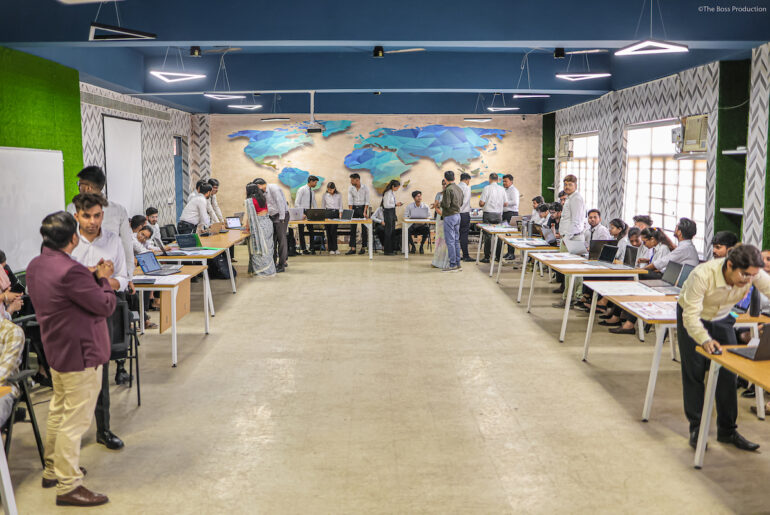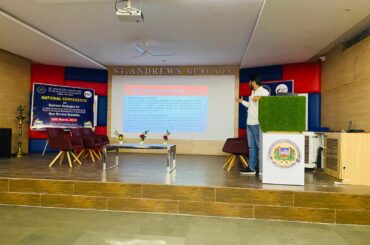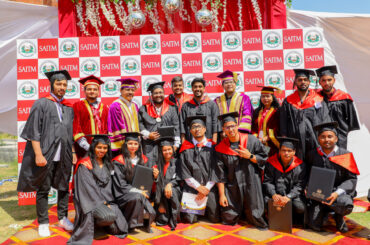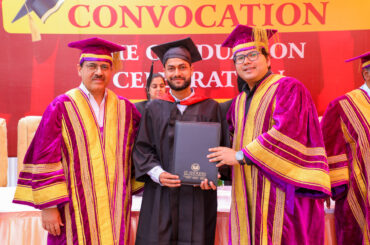What is B Tech Qualification
B.Tech, or Bachelor of Technology, is a four-year undergraduate program that provides both practical and theoretical knowledge in various engineering fields. “What is B Tech Qualification” relates to understanding how this degree prepares students in disciplines like Computer Science, Mechanical, Electrical, and Civil Engineering.
The program encompasses core subjects, electives, lab work, internships, and projects, all tailored to enhance problem-solving skills and technical expertise. “What is B Tech Qualification” refers to how a B.Tech degree prepares graduates for careers in engineering, research, and technology sectors, focusing on innovation and the practical application of engineering principles to real-world challenges.
Admission typically requires completion of higher secondary education with a focus on science subjects and may involve entrance examinations.
“What is B Tech Qualification” refers to the eligibility criteria for entering a Bachelor of Technology program. Candidates must have completed their higher secondary education (10+2) with a strong foundation in Physics, Chemistry, and Mathematics to be eligible for admission.
Institutions often require a minimum percentage of marks in these subjects. Admission is commonly based on entrance examinations like JEE Main, JEE Advanced, or other state and university-specific tests.
Certain institutions may impose additional criteria, like age limits or domicile requirements. “What is B Tech Qualification” encompasses meeting these standards to ensure candidates are ready for the rigorous and technically challenging B.Tech curriculum.
Some of the most opted courses in India and St. Andrews college or different Engineering college or Management colleges are as follows:-
BTech Course Duration
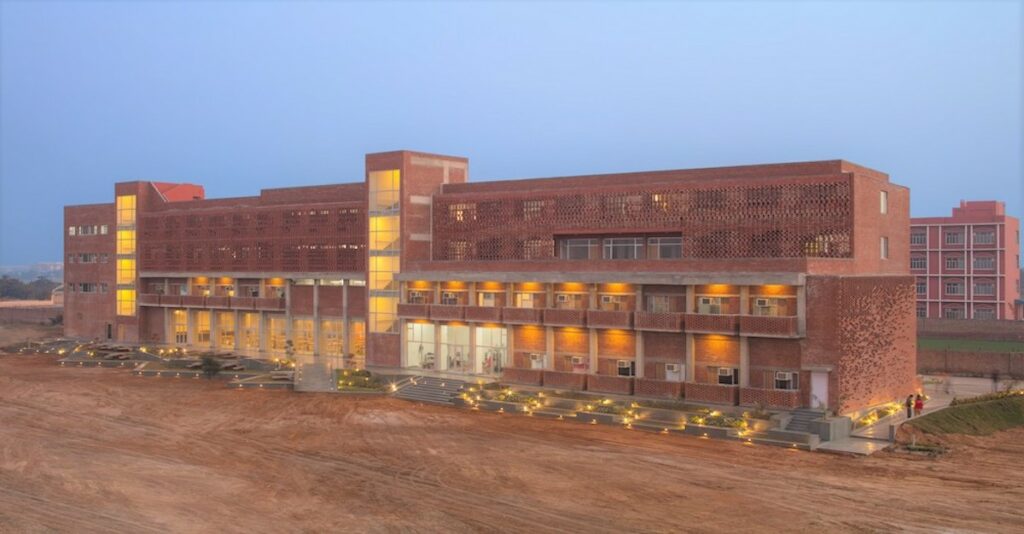
The BTech (Bachelor of Technology) program spans four years and is segmented into eight semesters, each approximately six months long. “What is B Tech Qualification” involves gaining thorough knowledge and practical skills across diverse engineering disciplines, facilitated through lectures, lab sessions, and projects.
The duration of a B Tech program may vary slightly depending on the institution and the specific course structure. “What is B Tech Qualification” includes understanding that while some universities offer part-time or extended programs that may take longer to complete, the standard duration for most full-time B Tech courses is four years, both in India and other countries.
Importance of B Tech Degree
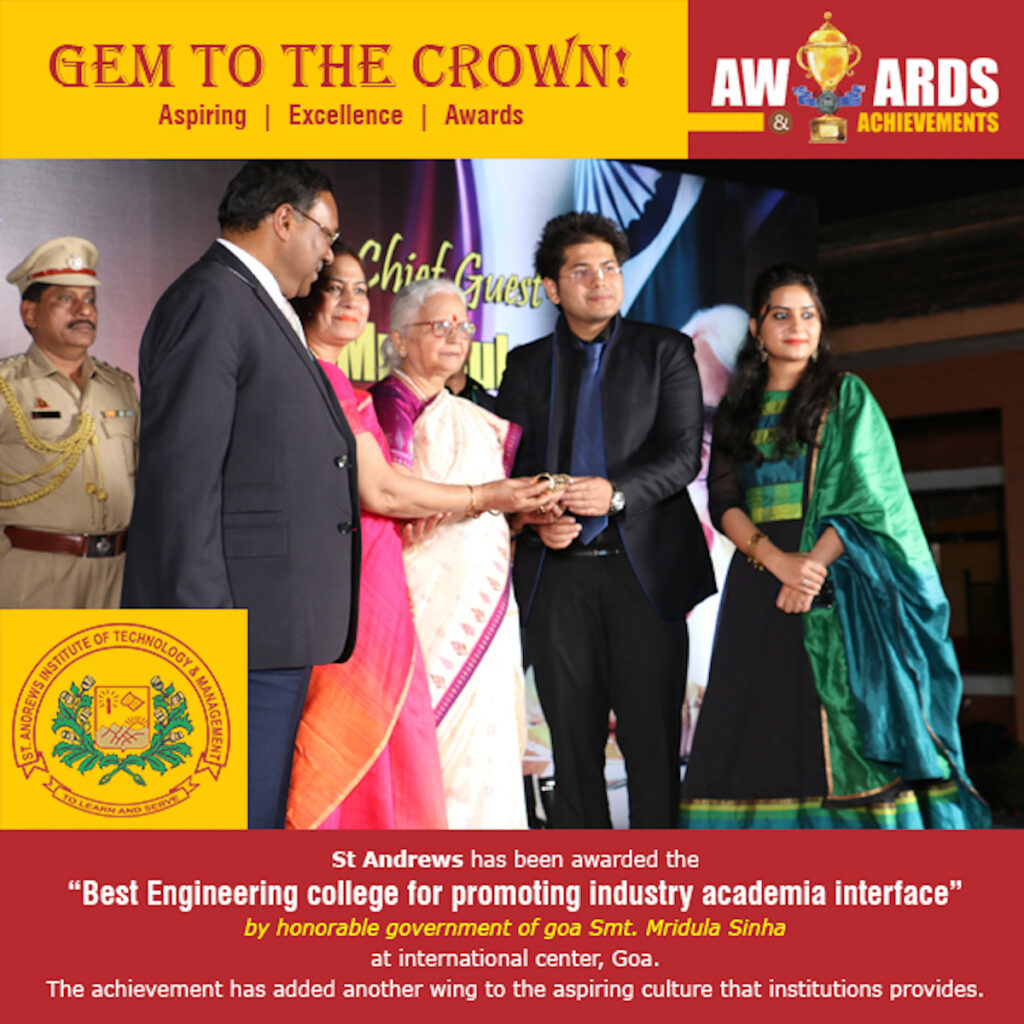
A BTech degree is crucial as it provides specialized knowledge and practical skills in engineering and technology, making graduates highly employable in diverse fields.
It equips students with problem-solving abilities, technical expertise, and hands-on experience essential for tackling complex challenges in various industries.
The degree often serves as a stepping stone to further education, such as master’s programs or specialized certifications. Additionally, “What is B Tech Qualification” opens up a variety of career paths, from application development to mechanical engineering, providing a competitive edge in the job market. Overall, a BTech degree is instrumental in forging a successful career in technology and engineering.
B Tech Course Details
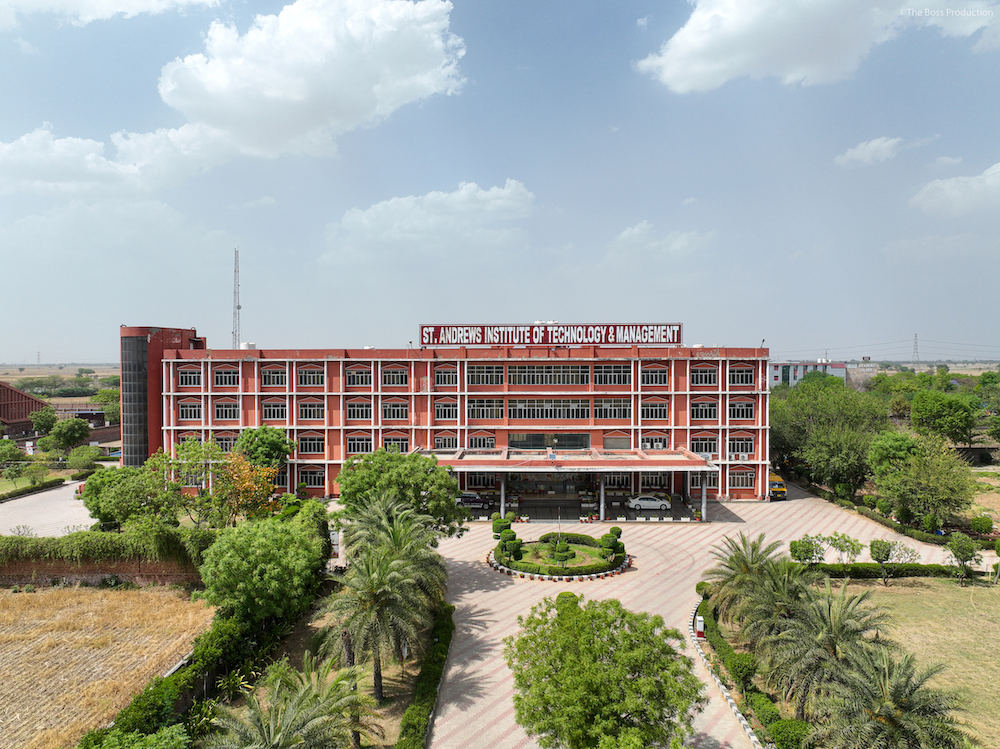
Here’s a general overview of the BTech Course:
Course Duration and Structure
Duration: Typically 4 years
Structure: Divided into 8 semesters
Includes core subjects, electives, laboratory work, and a final year project
Eligibility Criteria
Completion of 10+2 with Physics, Chemistry, and Mathematics (PCM)
Minimum aggregate marks (varies by institution)
Entrance exam scores (e.g., JEE Main, JEE Advanced)
Curriculum and Specializations
Core Subjects: Mathematics, Physics, Chemistry, Engineering Mechanics, Computer Science, etc.
Specializations: Computer Science, Mechanical, Electrical, Civil, Electronics, Chemical, etc.
Project Work: Capstone project in the final year
Mode of Instruction
Classroom Learning: Lectures, tutorials, practical sessions
Online Resources: E-learning platforms, virtual labs
Internships: Industry exposure through practical training
Assessment and Examinations
Continuous Assessment: Mid-term exams, quizzes, assignments
End-of-Semester Exams: Written and practical exams
Final Year Project: Evaluation of the project work and its presentation
Career Prospects:
Job Roles: Software Engineer, Mechanical Engineer, Civil Engineer, Data Analyst, etc.
Higher Education: Options for pursuing MTech, MBA, or other specialized degrees
Industry Opportunities: Public and private sector roles, startups, research and development
Accreditation and Recognition
Accreditation: Must be recognized by relevant educational bodies (e.g., AICTE in India)
Global Recognition: Degree validity and acceptance in other countries
Fee Structure and Financial Aid
Tuition Fees: Varies by institution and specialization
Scholarships: Merit-based, need-based, and institutional scholarships
Financial Aid: Loans and grants available through various schemes
B Tech Eligibility Criteria
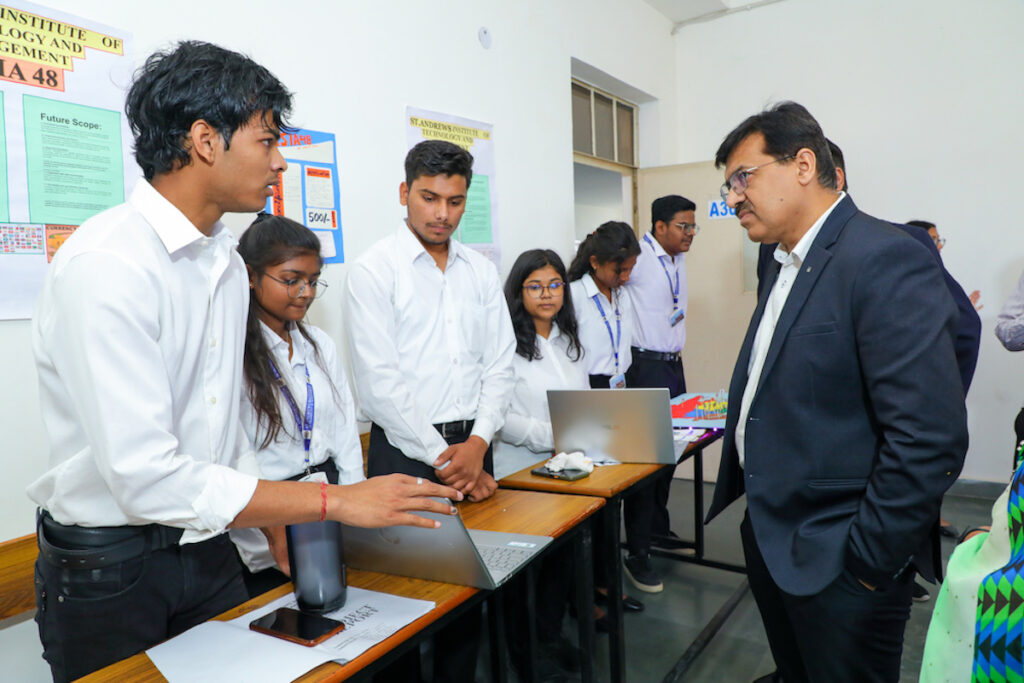
Here’s a general overview of the BTech Eligibility Criteria in India:
Educational Qualifications
- 10+2 Completion: Must have completed Higher Secondary Education (12th grade) with a focus on Science subjects.
- Subject Requirements: Typically, a combination of Physics, Chemistry, and Mathematics (PCM) is required. Some programs might also accept a combination of PCM with Computer Science or other related subjects.
Minimum Marks
- Aggregate Marks: Most institutions require a minimum aggregate percentage (often around 50-60%) in 10+2. Specific requirements may vary by institution and program.
Entrance Examinations
- National Level: Must clear btech entrance exams like JEE Main, JEE Advanced for many engineering colleges.
- State Level: Some institutions require state-specific exams (e.g., MHT-CET, WBJEE, KEAM).
- University Level: Private universities and some institutions may have their own entrance examinations (e.g., BITSAT, VITEEE).
Age Limit
- Age Criteria: Some institutions may have age limits or restrictions, but many do not have a specific age criterion.
Additional Requirements
- Language Proficiency: Proficiency in English may be required, especially for international students.
- Physical Fitness: Certain programs may have physical fitness requirements or medical examinations.
Other Criteria
- Entrance Exam Scores: Admission is often based on the scores obtained in relevant entrance exams.
- Counseling and Interviews: Some institutions may conduct counseling sessions or interviews as part of the admission process.
Reservation and Quotas
- Reservation Policies: Institutions may have reservations for SC/ST/OBC categories, women, and other specific groups as per government regulations.
B Tech Admission Process
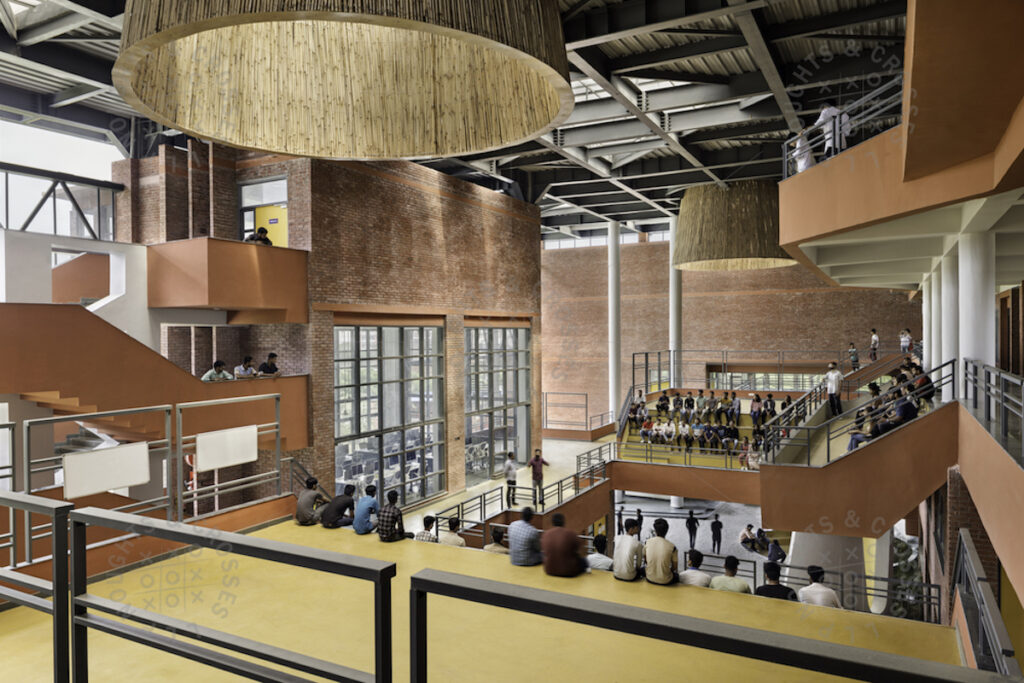
Here’s a general overview of the BTech Admission Process in India:
Eligibility Verification
- Ensure you meet the academic and entrance exam requirements.
- Check for any additional criteria set by the specific institution.
Entrance Examinations:
- Preparation: Study for and take relevant entrance examinations like JEE Main, JEE Advanced, or state-level tests.
- Application: Register for the exams as per their guidelines and deadlines.
- Results: Obtain your scores after the exam.
Application to Colleges
- Research: Identify colleges that offer your desired BTech program and check their admission criteria.
- Application Form: Fill out the application form of the colleges you wish to apply to. This can usually be done online.
- Documents: Submit required documents such as 10+2 marksheet, entrance exam scores, ID proof, and passport-sized photographs.
Counseling and Seat Allocation
- Counseling Rounds: Based on your entrance examination scores, participate in counseling sessions where you can choose your preferred college and specialization.
- Seat Allocation: Seats are allocated based on your rank and preference during the counseling process.
Admission Offer
- Acceptance: Receive an admission offer from the college.
- Fee Payment: Pay the admission fee and confirm your seat. This might include an initial deposit and full tuition fees.
Document Verification
- Verification: Submit all required documents for verification at the college. This often includes academic records, entrance examination scores, identity proof, and any other specified documents.
Enrollment
- Orientation: Attend the college’s orientation program to understand the academic structure, meet faculty, and familiarize yourself with the campus.
- Classes: Begin attending classes as per the academic calendar.
Financial Aid and Scholarships
- Apply for Financial Aid: If applicable, apply for scholarships, grants, or financial aid offered by the institution or external organizations.
Registration and Reporting
- Online Registration: Complete any online registration processes required by the institution.
- Reporting: Report to the college on the specified date to complete the final admission formalities.
BTech Specializations
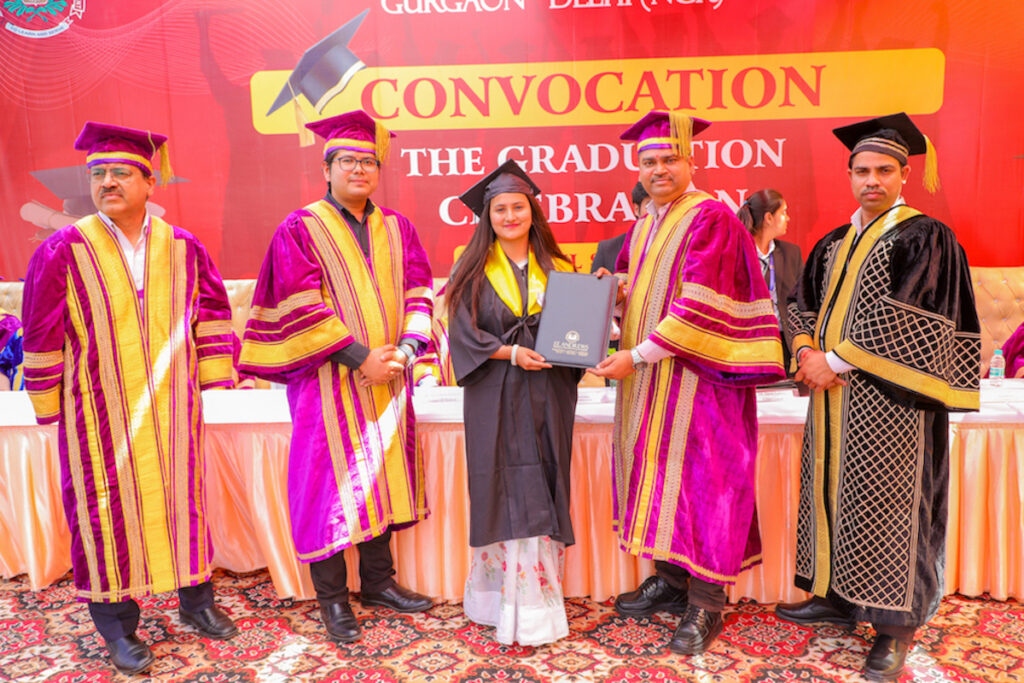
Here’s a general overview of the BTech Specializations:
Computer Science Engineering (CSE)
- Focuses on computer systems, application development, algorithms, data structures, and IT infrastructure.
- Careers: Software Developer, Data Scientist, Cybersecurity Analyst.
Mechanical Engineering
- Covers design, analysis, manufacturing, and maintenance of mechanical systems.
- Careers: Mechanical Engineer, Automotive Engineer, HVAC Engineer.
Civil Engineering(CE)
- Involves the design, construction, and maintenance of infrastructure such as roads, bridges, and buildings.
- Careers: Civil Engineer, Structural Engineer, Construction Manager.
Electrical Engineering
Deals with electrical systems, electronics, power generation, and control systems.
Careers: Power Engineer, Power Systems Engineer, Electronics Engineer.
Electronics and Communication Engineering (ECE)
Focuses on electronic devices, communication systems, and signal processing.
Careers Options: Electronics Engineer, Communication Systems Engineer, Embedded Systems Developer.
Chemical Engineering
Involves the design and optimization of chemical processes and systems.
Careers: Chemical Engineer, Process Engineer, Petrochemical Engineer.
Biotechnology
Integrates biological sciences with engineering principles to develop technologies and products.
Careers: Biotechnologist, Research Scientist, Bioinformatics Specialist.
Information Technology (IT)
Focuses on information systems, application development, and network management.
Careers: IT Consultant, Systems Analyst, Network Administrator.
Aerospace Engineering
Deals with the design and development of aircraft and spacecraft.
Careers: Aerospace Engineer, Avionics Technician, Space Systems Engineer.
Automobile Engineering
Specializes in the design, development, and production of automobiles.
Careers: Automobile Engineer, Vehicle Dynamics Specialist, Automotive Designer.
Environmental Engineering
Focuses on developing solutions for environmental issues and sustainability.
Careers: Environmental Engineer, Water Resources Engineer, Pollution Control Specialist.
Structural Engineering
Specializes in the analysis and design of structures that support or resist loads.
Careers: Structural Engineer, Bridge Engineer, Construction Engineer.
Industrial Engineering
Optimizes complex processes, systems, and organizations to improve efficiency and productivity.
Careers: Industrial Engineer, Operations Manager, Systems Analyst.
Production Engineering
Focuses on manufacturing processes and production systems.
Careers: Production Engineer, Manufacturing Manager, Quality Control Engineer.
Data Analytics and Engineering
Deals with data analysis, automated learning, and big data technologies.
Careers: Data Scientist, Machine Learning Engineer, Big Data Analyst.
Robotics Engineering
Involves the design, construction, and operation of robots.
Careers: Robotics Engineer, Automation Specialist, Robotics Programmer.
Top BTech Entrance Exams
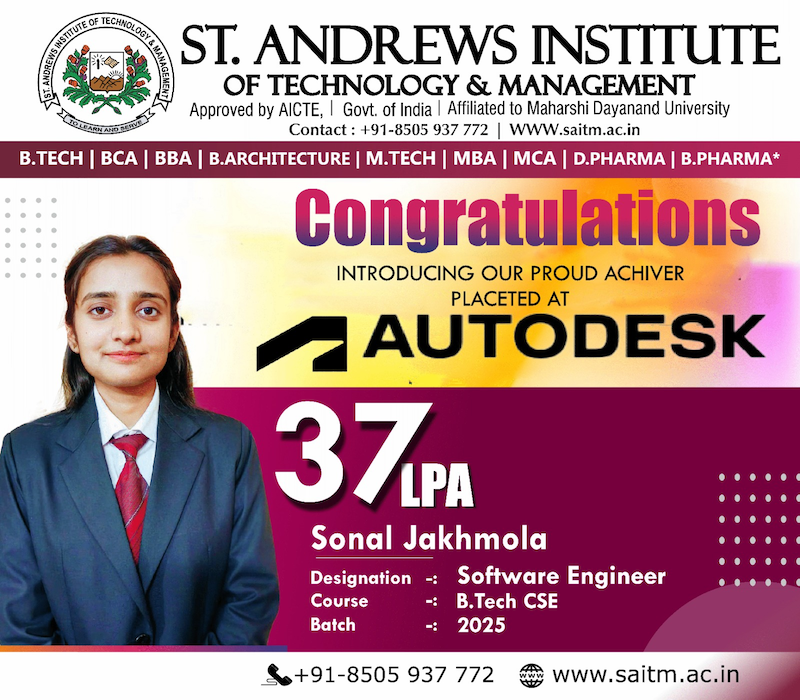
Here’s a general overview of the BTech Entrance Exam in India:
JEE Main (Joint Entrance Examination Main)
- Purpose: Entry to various NITs, IIITs, and other top engineering colleges in India.
- Subjects: Physics, Chemistry, Mathematics.
- Format: Computer-based test with multiple-choice questions.
JEE Advanced (Joint Entrance Examination Advanced)
- Purpose: Admission to IITs (Indian Institutes of Technology).
- Subjects: Physics, Chemistry, Mathematics.
- Format: Computer-based test with multiple-choice questions and numerical answer type questions.
BITSAT (Birla Institute of Technology and Science Admission Test)
- Purpose: Admission to BITS Pilani, BITS Goa, and BITS Hyderabad.
- Subjects: Physics, Chemistry, Mathematics, English Proficiency, Logical Reasoning.
- Format: Computer-based test with multiple-choice questions.
VITEEE (VIT Engineering Entrance Examination)
- Purpose: Admission to VIT University’s campuses (VIT Vellore, VIT Chennai, VIT-AP, VIT-Bhopal).
- Subjects: Physics, Chemistry, Mathematics, English.
- Format: Computer-based test with multiple-choice questions.
MHT-CET (Maharashtra Health and Technical Common Entrance Test)
- Purpose: Admission to engineering colleges in Maharashtra.
- Subjects: Physics, Chemistry, Mathematics.
- Format: Pen-and-paper test with multiple-choice questions.
WBJEE (West Bengal Joint Entrance Examination)
- Purpose: Admission to engineering colleges in West Bengal.
- Subjects: Physics, Chemistry, Mathematics.
- Format: Pen-and-paper test with multiple-choice questions.
KEAM (Kerala Engineering Architecture Medical Examination)
- Purpose: Admission to engineering colleges in Kerala.
- Subjects: Physics, Chemistry, Mathematics.
- Format: Pen-and-paper test with multiple-choice questions.
UPSEE (Uttar Pradesh State Entrance Examination)
- Purpose: Admission to engineering colleges in Uttar Pradesh.
- Subjects: Physics, Chemistry, Mathematics.
- Format: Pen-and-paper test with multiple-choice questions.
JCECE (Jharkhand Combined Entrance Competitive Examination)
- Purpose: Admission to engineering colleges in Jharkhand.
- Subjects: Physics, Chemistry, Mathematics.
- Format: Pen-and-paper test with multiple-choice questions.
BTech Fees in India
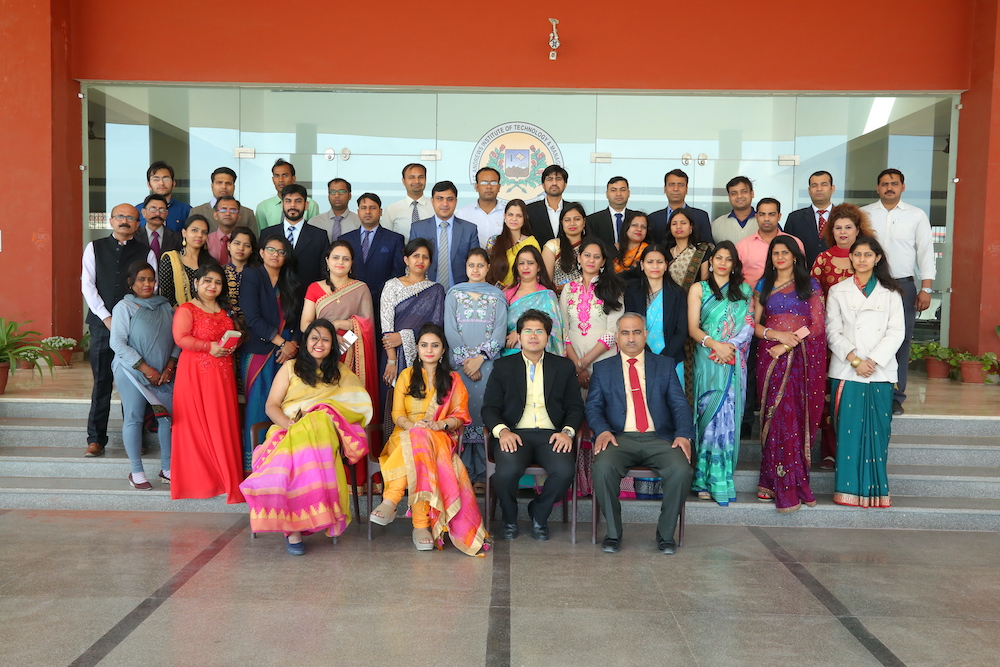
Here’s a general overview of the BTech Fee Structure in India:
Government Engineering Colleges
- Public Sector Institutes (e.g., IITs, NITs, IIITs):
- Annual Fees: ₹1,00,000 – ₹2,00,000
- Additional Costs: Hostels and other charges may apply.
State Government Colleges:
- Annual Fees: ₹50,000 – ₹1,00,000
- Additional Costs: Hostels and other charges may apply.
Private Engineering Colleges
- Top Private Institutes (e.g., BITS Pilani, VIT, SAITM):
- Annual Fees: ₹98,500 – ₹4,00,000
- Additional Costs: Hostel fees, books, and other expenses.
- Other Private Colleges:
- Annual Fees: ₹1,00,000 – ₹2,50,000
- Additional Costs: Hostel fees, books, and other expenses.
Deemed-to-be Universities
- Annual Fees: ₹2,00,000 – ₹5,00,000
- Additional Costs: Hostel fees, lab fees, and other expenses.
Financial Aid and Scholarships:
- Merit-based Scholarships: Available in many institutions for high-scoring students.
- Need-based Financial Aid: Some institutions offer financial aid based on family income.
- Government Scholarships: Various scholarships and financial aid programs are available for economically weaker sections.
Other Charges
- Hostel Fees: ₹30,000 – ₹1,00,000 per year, depending on the type of accommodation.
- Lab Fees: Additional fees for lab materials and practical sessions.
Top BTech Colleges in India
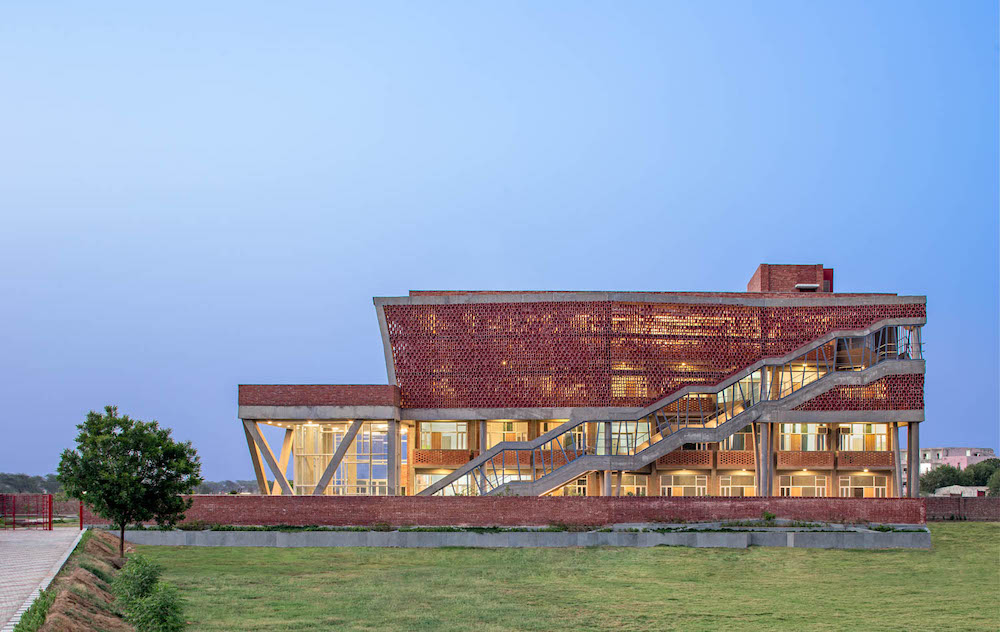
Here’s a detailed overview of some top BTech colleges in India:
St. Andrews Institute of Technology & Management (SAITM), Gurgaon
Programs Offered: SAITM offers a range of BTech programs in specializations like Computer Science Engineering, Mechanical Engineering, Civil Engineering, and more.
Infrastructure: The institute boasts modern classrooms, state-of-the-art laboratories, a well-equipped library, and excellent hostel facilities.
Placement: The placement cell at SAITM is proactive, with strong industry connections. Students have been placed in reputed companies across various sectors.
Accreditation: SAITM is affiliated with Maharshi Dayanand University (MDU), Rohtak, and is approved by the All India Council for Technical Education (AICTE).
Extra-curriculars: The college emphasizes holistic development with various cultural, technical, and sports activities.
Indian Institutes of Technology (IITs)
Programs Offered: IITs offer a wide range of specializations in BTech programs, including cutting-edge fields like AI, Data Science, and Robotics.
Infrastructure: World-class facilities, cutting-edge research labs, and extensive libraries.
Placement: IITs are renowned for their high placement rates with top global and national companies. BTech Graduates often secure top-tier positions with impressive salaries.
Accreditation: All IITs are autonomous public technical universities funded by the Government of India.
National Institutes of Technology (NITs)
Programs Offered: NITs offer a broad spectrum of BTech specializations, including Engineering Physics, Chemical Engineering, and Power Engineering.
Infrastructure: Modern facilities with a focus on research and development, including well-equipped labs and high-tech libraries.
Placement: NITs have strong placement records with various multinational companies recruiting their graduates.
Accreditation: NITs are autonomous institutions funded by the Government of India, known for their high academic standards.
Birla Institute of Technology and Science (BITS)
Programs Offered: BITS offers diverse BTech programs, including innovative specializations like Bioengineering, Manufacturing, and Information Systems.
Infrastructure: BITS campuses are well-equipped with modern infrastructure, research labs, and extensive libraries.
Placement: Known for excellent placement opportunities with both national and international companies. BITS Pilani, in particular, has a strong placement record.
Accreditation: BITS is a private institution known for its high academic and research standards.
Vellore Institute of Technology (VIT)
Programs Offered: VIT offers a wide range of BTech programs, including innovative fields like Cybersecurity, Data Science, and Artificial Intelligence.
Infrastructure: State-of-the-art facilities, modern classrooms, and advanced research labs.
Placement: VIT has a strong placement record with numerous companies visiting the campus for recruitment.
Accreditation: VIT is a private university known for its emphasis on quality education and research.
Delhi Technological University {DTU}
Programs Offered: DTU offers a range of BTech programs, including specializations like Software Engineering, Electrical and Electronics Engineering, and Mechanical Engineering.
Infrastructure: Modern infrastructure with state-of-the-art labs, extensive libraries, and a conducive learning environment.
Placement: DTU has strong industry connections and excellent placement records.
Accreditation: DTU is a public university that has established a reputation for its high academic standards and research output.
Top Government BTech Colleges

Here’s a list of some of the top govt BTech colleges in India:
Indian Institute of Technology (IIT) Bombay
- Location: Mumbai, Maharashtra
- Highlights: One of the premier IITs known for its research, faculty, and global reputation.
Indian Institute of Technology (IIT) Delhi
- Location: New Delhi
- Highlights: Known for its research contributions and innovation in various engineering fields.
Indian Institute of Technology (IIT) Madras
- Location: Chennai, Tamil Nadu
- Highlights: Renowned for its strong emphasis on research and industry collaboration.
Indian Institute of Technology (IIT) Kanpur
- Location: Kanpur, Uttar Pradesh
- Highlights: Known for its advanced research facilities and quality education in engineering.
Indian Institute of Technology (IIT) Kharagpur
- Location: Kharagpur, West Bengal
- Highlights: One of the oldest IITs with a comprehensive range of engineering programs.
National Institute of Technology (NIT) Trichy
- Location: Tiruchirappalli, Tamil Nadu
- Highlights: Known for its engineering programs and strong industry connections.
National Institute of Technology (NIT) Warangal
- Location: Warangal, Telangana
- Highlights: Offers diverse engineering specializations with a focus on research and innovation.
Indian Institute of Engineering Science and Technology (IIEST) Shibpur
- Location: Shibpur, West Bengal
- Highlights: Renowned for its engineering programs and research contributions.
Delhi Technological University (DTU)
- Location: New Delhi
- Highlights: Known for its strong industry links and diverse engineering courses.
Institute of Chemical Technology (ICT) Mumbai
- Location: Mumbai, Maharashtra
- Highlights: Specializes in chemical engineering and related fields, with a strong research focus.
Top Private BTech Colleges
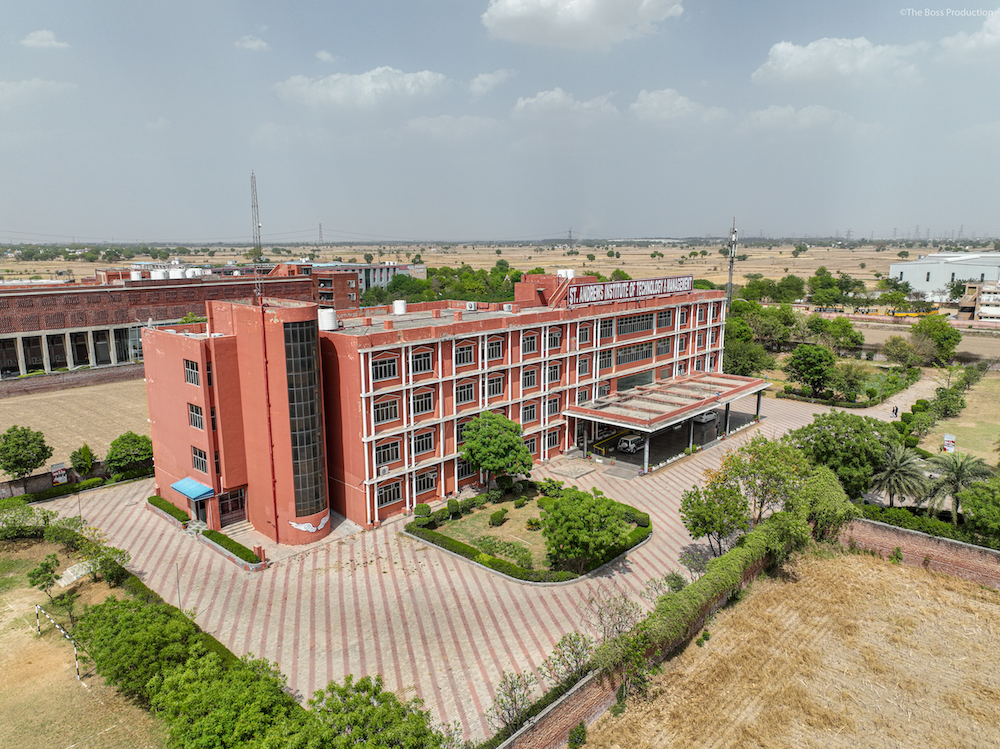
Here’s a list of some of the top private BTech colleges in India:
St. Andrews Institute of Technology and Management (SAITM)
- Location: Gurgaon, Haryana
- Highlights: Known for its focus on practical training and industry collaboration, SAITM offers a range of engineering specializations.
Bharati Vidyapeeth Deemed University, College of Engineering
- Location: Pune, Maharashtra
- Highlights: Offers a variety of engineering programs with strong industry connections and research facilities.
VIT University
- Location: Vellore, Tamil Nadu
- Highlights: Renowned for its VIT Engineering Entrance Examination (VITEEE) and a wide range of specializations.
Shiv Nadar University
- Location: Greater Noida, Uttar Pradesh
- Highlights: Known for its interdisciplinary approach and emphasis on research and development.
Thapar Institute of Engineering and Technology
- Location: Patiala, Punjab
- Highlights: A well-regarded institute with strong industry ties and research opportunities.
Sathyabama Institute of Science and Technology
- Location: Chennai, Tamil Nadu
- Highlights: Offers a variety of engineering programs with a focus on practical training.
Jain University
- Location: Bangalore, Karnataka
- Highlights: Offers innovative programs and has strong industry connections.
BTech Scope
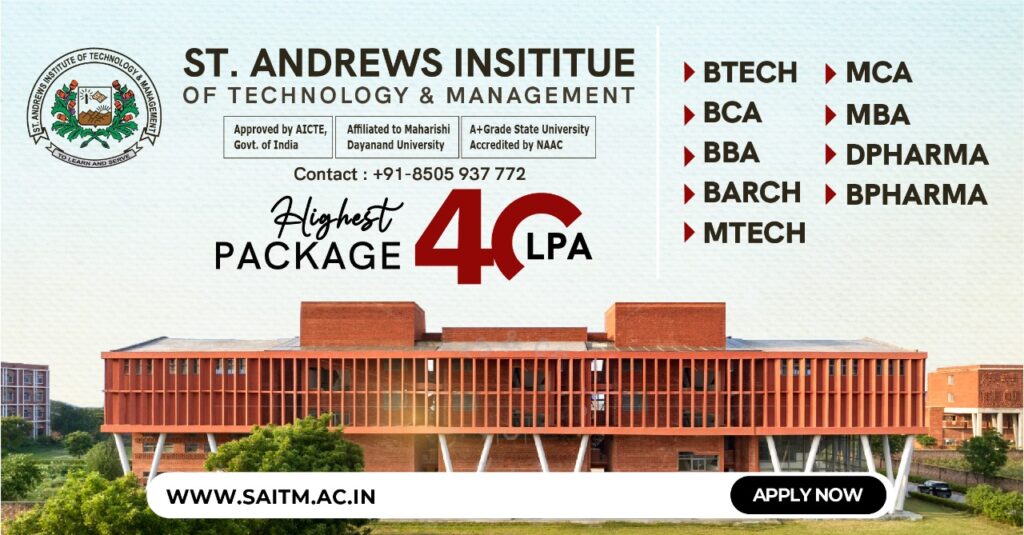
Here’s a detailed look at the scope of a BTech degree:
Software and IT Industry
- Software Developer/Engineer: Design, develop, and maintain software applications.
- Systems Analyst: Analyze and improve IT systems and processes.
- Network Engineer: Manage and maintain network infrastructure.
Hardware and Electronics
- Electronics Engineer: Design and develop electronic systems and devices.
- Embedded Systems Developer: Work on systems integrated into other devices.
- Hardware Engineer: Design and test computer hardware components.
Mechanical Engineering:
- Mechanical Engineer: Work on machinery, equipment, and manufacturing processes.
- Automotive Engineer: Develop and improve automotive systems and vehicles.
- Aerospace Engineer: Design and test aircraft and spacecraft.
Civil Engineering:
- Civil Engineer: Design and oversee construction of infrastructure projects.
- Structural Engineer: Focus on the structural integrity of buildings and bridges.
- Environmental Engineer: Work on projects related to environmental protection.
Electrical Engineering:
- Power Engineer: Work on electrical systems and equipment.
- Power Systems Engineer: Design and manage power generation and distribution systems.
- Control Systems Engineer: Develop systems for controlling machinery and processes.
Information Technology
- IT Consultant: Provide advice on technology solutions and implementations.
- Database Administrator: Manage and maintain databases.
- Cybersecurity Specialist: Protect systems and data from cyber threats.
Research and Development
- R&D Engineer: Work on developing new technologies and products.
- Academic Researcher: Conduct research in specialized areas of technology.
Higher Education and Specializations
- Master’s Degree (MTech, MS): Pursue advanced studies in a specialized field.
- MBA: Combine technical skills with business management for leadership roles.
- PhD: Engage in advanced research and academic teaching.
Entrepreneurship
- Startups: Launch your own tech company or startup in areas like software, hardware, or consulting.
- Consultancy: Offer expert advice and services to other businesses and organizations.
Industry Sectors
- Information Technology
- Telecommunications
- Automotive
- Aerospace
- Construction
- Manufacturing
Job Market Trends
- Emerging Technologies: Fields like artificial intelligence, blockchain, and the Internet of Things (IoT) are growing rapidly.
- Global Opportunities: BTech graduates can find opportunities both locally and internationally.
Skill Development
- Technical Skills: Proficiency in programming languages, software tools, and engineering principles.
- Soft Skills: Communication, teamwork, problem-solving, and project management.
BTech Curriculum and Syllabus
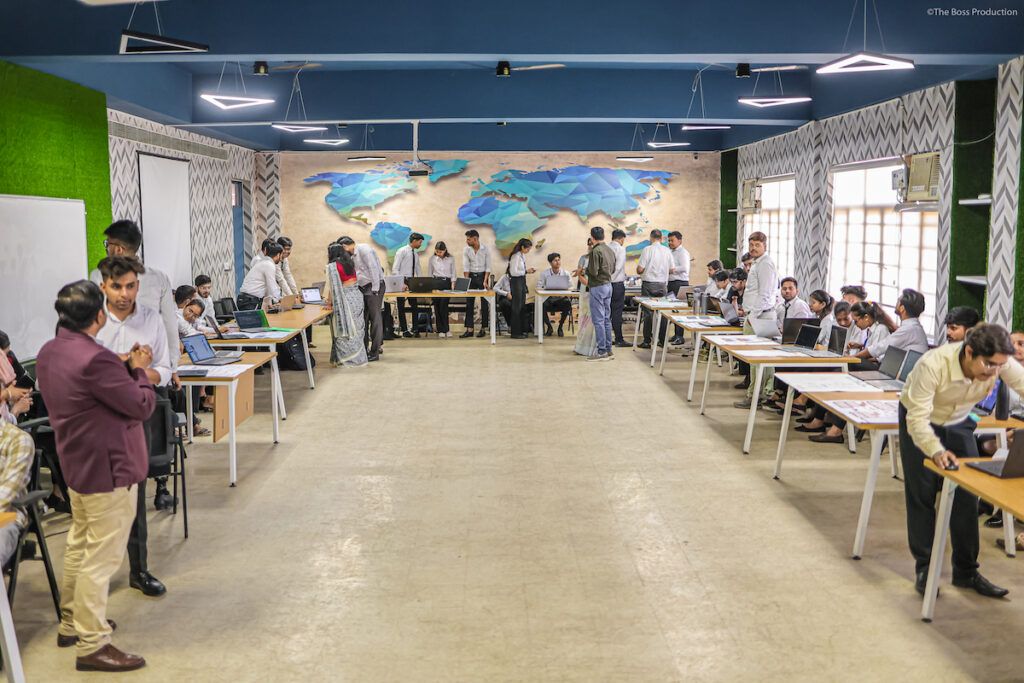
Here’s a detailed look at BTech Curriculum and Syllabus:
Year 1: Foundation Courses
Semester 1
Mathematics I: Topics like Calculus, Linear Algebra.
Physics I: Mechanics, Optics, Thermodynamics.
Chemistry I: Basic concepts, Organic and Inorganic Chemistry.
Engineering Drawing: Basic drafting techniques, CAD.
Basic Electrical Engineering: Circuit theory, Electrical machines.
Programming in C: Introduction to programming concepts using C language.
Semester 2
Mathematics II: Differential Equations, Complex Analysis.
Physics II: Electromagnetism, Modern Physics.
Chemistry II: Physical Chemistry, Analytical Techniques.
Engineering Mechanics: Statics, Dynamics, Strength of Materials.
Computer Programming: Introduction to programming with different languages.
Basic Civil and Mechanical Engineering: Basics of structures, materials, and mechanics.
Year 2: Core Engineering Subjects
Semester 3
Data Structures: Arrays, Linked Lists, Stacks, Queues.
Discrete Mathematics: Logic, Sets, Graph Theory.
Computer Organization: CPU, Memory, I/O Systems.
Digital Logic Design: Boolean Algebra, Logic Gates, Flip-Flops.
Operating Systems: Process Management, Memory Management, File Systems.
Database Management Systems: Relational Models, SQL, Normalization.
Semester 4
Algorithms: Sorting, Searching, Algorithmic Complexity.
Software Engineering: Application Development Life Cycle, Design Patterns.
Computer Networks: Network Models, Protocols, Network Security.
Theory of Computation: Finite Automata, Regular Expressions, Turing Machines.
Microprocessors: Architecture, Assembly Language Programming.
Web Technologies: HTML, CSS, JavaScript, Web Servers.
Year 3: Advanced Topics and Electives
Semester 5
Compiler Design: Lexical Analysis, Parsing, Semantic Analysis.
Artificial Intelligence: Machine Learning, Neural Networks, Natural Language Processing.
Machine Learning: Supervised and Unsupervised Learning, Deep Learning.
Cybersecurity: Network Security, Cryptography, Ethical Hacking.
Elective I: Specialized subject based on interests.
Elective II: Additional elective, often related to emerging technologies.
Semester 6
Cloud Computing: Cloud Services, Virtualization, Cloud Architecture.
Big Data Analytics: Data Processing, Hadoop, Data Warehousing.
Internet of Things (IoT): IoT Architecture, Sensors, IoT Protocols.
Elective III: Further specialized subject.
Elective IV: Another elective based on student’s area of interest.
Project I: Initial project work or research.
Year 4: Specialization and Project Work
Semester 7
Advanced Electives: Specialized subjects in the chosen field.
Application Development Practices: Advanced topics in software engineering, agile methodologies.
Entrepreneurship: Basics of starting and managing a tech startup.
Industrial Training: Internships or practical experience in a relevant industry.
Project II: Major project or research work related to the specialization.
Semester 8
Dissertation: Comprehensive research project or thesis.
Advanced Electives: Further in-depth electives based on specialization.
Engineering Management: Management principles, Project Management.
Final Project: Capstone project demonstrating knowledge and skills acquired throughout the program.
Bachelor of Technology vs. BE
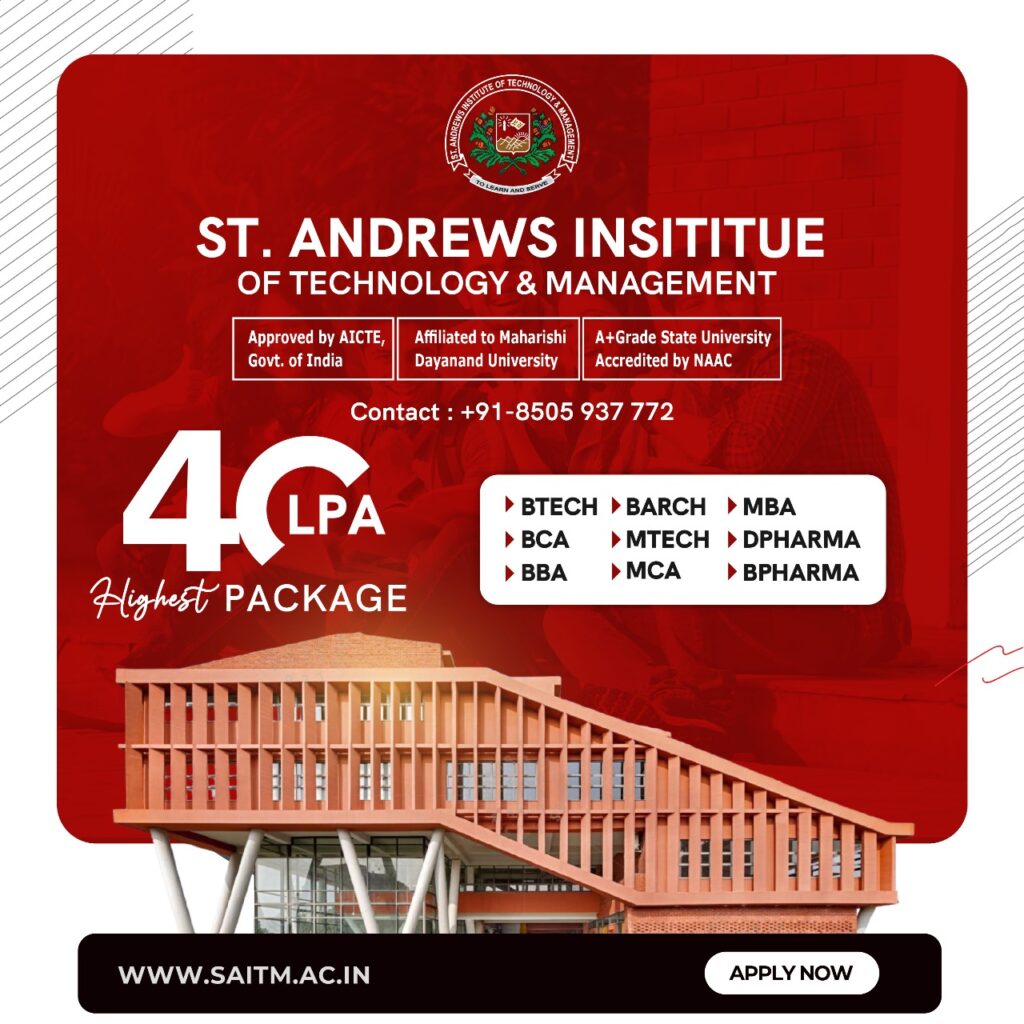
Here’s a detailed comparison:
1. Curriculum and Focus
Bachelor of Technology (BTech)
- Curriculum: Tends to have a more practical and application-oriented approach. The focus is on technical skills and the practical application of engineering principles.
- Specializations: Often includes a range of specialized courses and practical projects. The curriculum may emphasize emerging technologies and industry-relevant skills.
- Practical Exposure: Usually includes more lab work, industry projects, and hands-on training.
Bachelor of Engineering (BE)
- Curriculum: Generally has a more theoretical approach. The emphasis is on fundamental engineering concepts and principles.
- Specializations: May offer fewer specialized courses compared to BTech, focusing more on core engineering subjects.
- Practical Exposure: May have a more traditional approach to practical training and fewer industry-specific projects.
2. Duration and Structure
- Duration: Both BTech and BE programs typically span 4 years, divided into 8 semesters.
- Structure: The structure is similar in terms of core courses, electives, and project work. However, BTech courses may include more practical and industry-oriented coursework.
3. Institutional Focus
Bachelor of Technology (BTech)
- Institutions: Often offered by private institutions, deemed-to-be universities, and some public universities.
- Focus: Emphasizes technology and application, and often includes industry collaborations and internships as part of the curriculum.
Bachelor of Engineering (BE)
- Institutions: Commonly offered by government-funded engineering colleges and universities.
- Focus: Tends to have a more traditional engineering education model with a strong emphasis on theoretical knowledge.
4. Recognition and Value
- Global Recognition: Both degrees are generally recognized globally as equivalent qualifications for engineering education.
- Industry Preference: In practice, when considering “What is B Tech Qualification” versus a Bachelor of Engineering (BE), the choice may not significantly affect employability or career prospects, as both degrees are equally valued by employers. The crucial aspect is the quality of the program and the skills acquired, which are key determinants of success in the field.
5. Admission Criteria
- BTech: Admission often involves entrance exams like JEE Main, JEE Advanced, or university-specific tests. Some private institutions may have their own entrance exams or admission criteria.
- BE: Admission may also involve entrance exams similar to those for BTech, with some institutions considering academic performance or specific entrance tests.
6. Career Opportunities
- Both degrees offer similar career opportunities in engineering fields, including roles in application development, hardware engineering, biomedical engineering, computer engineering, civil engineering, mechanical engineering, and more.
- Specialization and Interests: Career prospects are more influenced by specialization, skills, and interests rather than the degree title itself.
7. Further Studies
- Both degrees allow for further studies such as pursuing a Master’s degree (MTech, M.S.) or an MBA.
- Advanced Research: BTech Graduates from both programs can pursue research opportunities or doctoral studies.
Career Opportunities After BTech
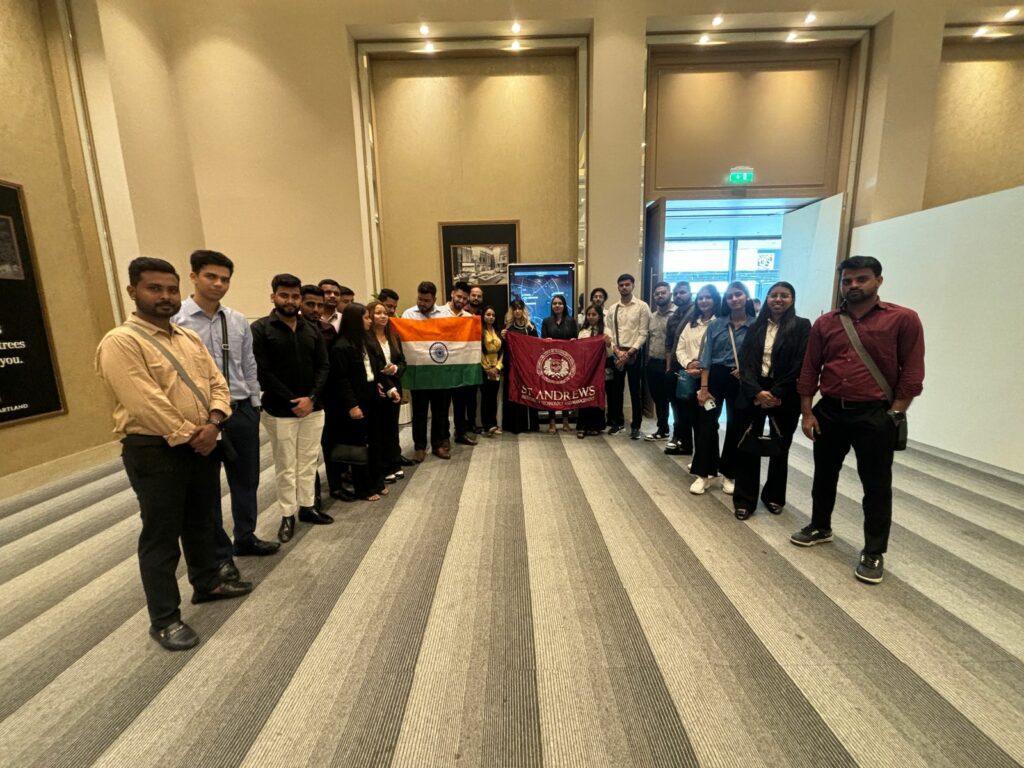
Here’s a comprehensive overview of career paths for BTech graduates:
1. Industry and Technology Roles
Software Engineering
- Roles: Software Developer, Web Developer, Mobile App Developer, Software Tester.
- Skills Needed: Proficiency in programming languages (Java, Python, C++), application development methodologies (Agile, Scrum), and problem-solving skills.
Hardware Engineering
- Roles: Hardware Engineer, Electronics Engineer, Embedded Systems Engineer.
- Skills Needed: Knowledge of circuit design, microcontrollers, and hardware-software integration.
Data Science and Analytics
- Roles: Data Analyst, Data Scientist, Business Intelligence Analyst.
- Skills Needed: Expertise in statistical analysis, machine learning, data visualization tools (e.g., Tableau), and programming languages (e.g., R, Python).
Network and Cybersecurity
- Roles: Network Engineer, Security Analyst, Ethical Hacker, Information Security Manager.
- Skills Needed: Understanding of network protocols, cybersecurity principles, and tools for threat detection and prevention.
2. Engineering and Design
Civil Engineering;
- Roles: Structural Engineer, Site Engineer, Construction Manager.
- Skills Needed: Knowledge of civil engineering principles, project management, and construction techniques.
Mechanical Engineering;
- Roles: Mechanical Design Engineer, Production Engineer, Automotive Engineer.
- Skills Needed: Understanding of mechanical systems, CAD software, and manufacturing processes.
Electrical Engineering;
- Roles: Power Engineer, Power Systems Engineer, Control Systems Engineer.
- Skills Needed: Expertise in electrical circuits, power generation and distribution, and control systems.
3. Management and Consulting
Management Consulting
- Roles: Business Analyst, Management Consultant.
- Skills Needed: Analytical skills, business acumen, and problem-solving abilities.
Project Management
- Roles: Project Manager, Program Manager.
- Skills Needed: Project planning, execution, and monitoring; familiarity with project management tools (e.g., MS Project, JIRA).
4. Entrepreneurship
- Roles: Startup Founder, Business Owner.
- Skills Needed: Business planning, financial management, and marketing.
5. Further Education and Research
Higher Studies
- Options: Master’s Degree (MTech, M.S.), MBA, or specialized courses.
- Fields: Advanced engineering, management, data science, etc.
Research and Development
- Roles: Research Scientist, R&D Engineer.
- Skills Needed: In-depth knowledge of specific technologies, research methodology, and problem-solving.
6. Government and Public Sector
Public Sector Jobs
- Roles: Technical Officer, Engineer in PSUs (Public Sector Undertakings), Defense Services.
- Skills Needed: Subject-specific knowledge, civil services exams, and technical aptitude.
Teaching and Academia:
- Roles: Lecturer, Assistant Professor.
- Skills Needed: Strong knowledge in the subject area, teaching skills, and possibly a master’s or doctoral degree.
7. Freelancing and Remote Work
- Roles: Freelance Developer, Consultant, Designer.
- Skills Needed: Technical expertise, self-discipline, and project management.
8. Non-Technical Careers
Management Roles
- Roles: Business Development Manager, Sales Engineer.
- Skills Needed: Communication skills, business strategy, and client management.
Creative Fields
- Roles: Technical Writer, Digital Marketer.
- Skills Needed: Strong writing skills, understanding of digital platforms, and marketing strategies.
Top Recruiters for BTech

Here’s a list of some prominent recruiters:
1. Technology and IT Companies
Infosys
- Profile: Global leader in consulting, technology, and outsourcing solutions.
- Roles: Software Engineer, Systems Analyst, Project Manager.
Tata Consultancy Services (TCS)
- Profile: Leading IT services, consulting, and business solutions organization.
- Roles: Software Developer, IT Consultant, Systems Engineer.
Wipro
- Profile: Multinational corporation providing IT, consulting, and business process services.
- Roles: Software Engineer, Business Analyst, IT Consultant.
HCL Technologies
- Profile: Global IT services and consulting company.
- Roles: Software Developer, Network Engineer, Systems Analyst.
Cognizant
- Profile: Provider of IT services, consulting, and business solutions.
- Roles: IT Consultant, Software Engineer, Data Analyst.
IBM
- Profile: Global leader in IT services, cloud computing, and AI.
- Roles: Software Developer, Data Scientist, Systems Engineer.
Microsoft
- Profile: Technology giant specializing in software, hardware, and cloud services.
- Roles: Software Engineer, Program Manager, Cloud Solutions Architect.
- Profile: Leading technology company known for its search engine, advertising, and various tech innovations.
- Roles: Software Engineer, Data Scientist, Product Manager.
2. Engineering and Manufacturing
Siemens
- Profile: Global engineering and technology company.
- Roles: Mechanical Engineer, Power Engineer, Project Engineer.
General Electric (GE)
- Profile: Multinational conglomerate involved in energy, technology, and manufacturing.
- Roles: Mechanical Engineer, Power Engineer, Systems Engineer.
Bharat Heavy Electricals Limited (BHEL)
- Profile: Public sector company in the power and industrial equipment sector.
- Roles: Electrical Engineer, Mechanical Engineer, Design Engineer.
Larsen & Toubro (L&T)
- Profile: Major technology, engineering, construction, and manufacturing conglomerate.
- Roles: Civil Engineer, Mechanical Engineer, Electrical Engineer.
3. Finance and Consulting
Goldman Sachs
- Profile: Leading global investment banking, securities, and investment management firm.
- Roles: Financial Analyst, Technology Analyst, Risk Manager.
JP Morgan Chase
- Profile: Global financial services firm providing investment banking, financial services, and asset management.
- Roles: Financial Analyst, Technology Analyst, Operations Analyst.
Deloitte
- Profile: Global consulting and professional services firm.
- Roles: Management Consultant, Technology Consultant, Financial Analyst.
Ernst & Young (EY)
- Profile: Multinational professional services firm providing audit, consulting, and advisory services.
- Roles: Consultant, Auditor, Tax Advisor.
4. Startups and Emerging Tech Companies
Paytm
- Profile: Leading digital payment and financial services company.
- Roles: Software Engineer, Product Manager, Data Scientist.
5. Public Sector and Government Organizations
Indian Space Research Organisation (ISRO)
- Profile: Space agency of the Government of India.
- Roles: Space Scientist, Engineer, Research Scientist.
Defense Research and Development Organisation (DRDO)
- Profile: Agency under the Ministry of Defence, focusing on defense technology.
- Roles: Scientist, Engineer, Research Officer.
6. Consulting and Advisory Firms
McKinsey & Company
- Profile: Global management consulting firm.
- Roles: Business Analyst, Consultant, Research Analyst.
Boston Consulting Group (BCG)
- Profile: Global management consulting firm known for business strategy consulting.
- Roles: Consultant, Business Analyst, Project Manager.
Skills Required for BTech Students
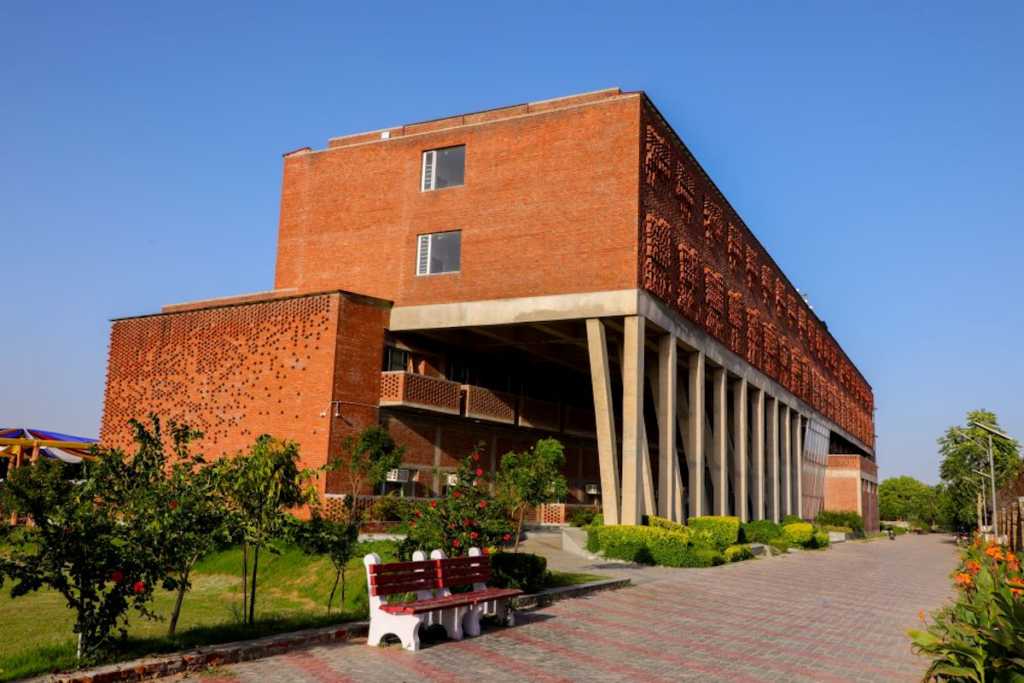
Here are some key skills:
Technical Skills
- Programming: Proficiency in languages like Python, Java, C++, and others relevant to their specialization.
- Data Structures and Algorithms: Understanding of core concepts and problem-solving techniques.
- Software Development: Knowledge of software development methodologies and tools.
Analytical Skills
- Problem-Solving: Ability to analyze complex problems and devise effective solutions.
- Critical Thinking: Evaluating situations from multiple perspectives to make informed decisions.
Mathematical Skills
- Calculus and Algebra: Fundamental for understanding complex algorithms and computational theories.
- Statistics: Useful for data analysis and research-oriented tasks.
Communication Skills
- Verbal Communication: Ability to clearly express ideas and collaborate with team members.
- Written Communication: Proficiency in writing reports, documentation, and research papers.
Project Management
- Time Management: Efficiently managing time to balance academic, personal, and professional responsibilities.
- Team Collaboration: Working effectively in teams, understanding roles, and contributing to group goals.
Technical Tools and Software
- IDE and Development Tools: Familiarity with Integrated Development Environments (IDEs) and version control systems like Git.
- Database Management: Basic knowledge of SQL and database systems.
Adaptability and Learning
- Continuous Learning: Staying updated with the latest technologies and industry trends.
- Flexibility: Adapting to new tools, technologies, and work environments.
Ethical and Professional Skills
- Ethical Considerations: Understanding the ethical implications of technology and engineering practices.
- Professionalism: Adhering to industry standards and maintaining a professional demeanor.
Challenges Faced by BTech Students
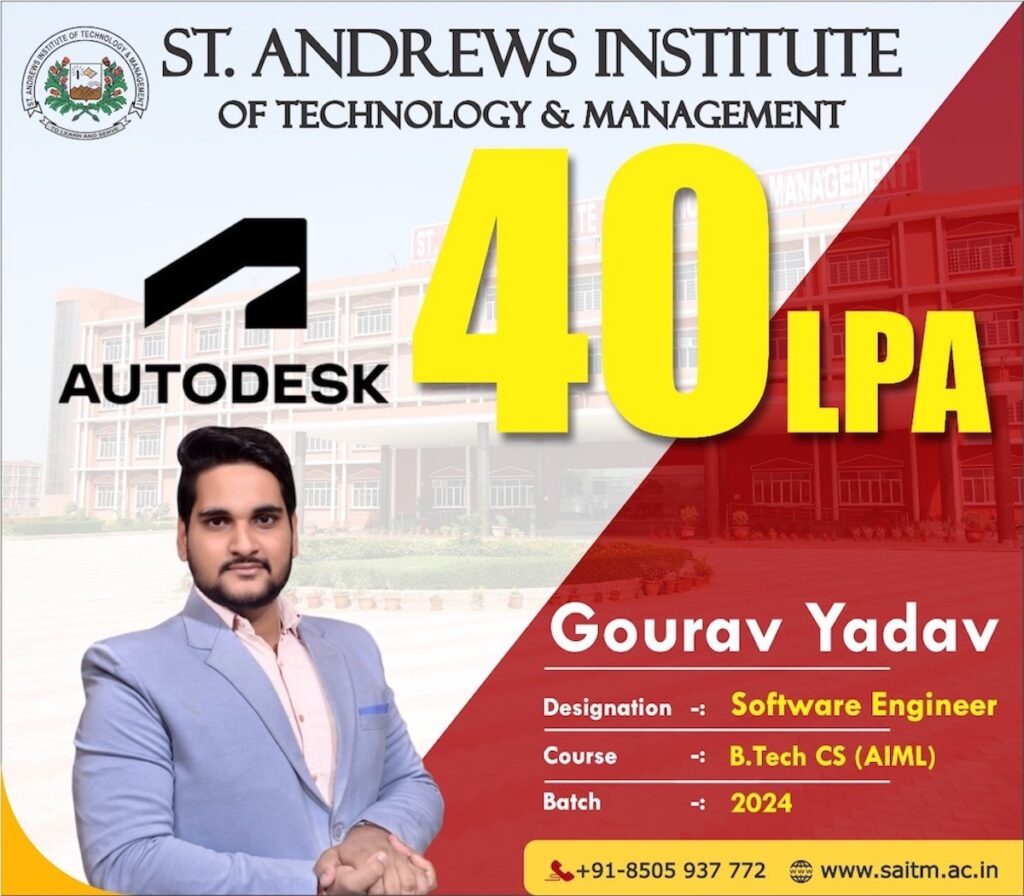
Here are some common ones:
Academic Pressure
- Heavy Workload: Managing a significant amount of coursework, assignments, and projects can be overwhelming.
- Complex Subjects: Grappling with difficult and advanced technical subjects can be challenging.
Time Management
- Balancing Studies and Personal Life: Finding time for extracurricular activities, social life, and rest while keeping up with academic demands can be difficult.
- Meeting Deadlines: Juggling multiple deadlines and managing time effectively is crucial but challenging.
Understanding Core Concepts
- Conceptual Difficulties: Some topics, especially those involving advanced mathematics or complex algorithms, may be hard to grasp initially.
- Application of Theory: Applying theoretical knowledge to practical problems and real-world scenarios can be challenging.
Skill Development:
- Technical Skills: Acquiring and mastering necessary technical skills and tools requires time and effort.
- Soft Skills: Developing communication, teamwork, and project management skills is often overlooked but essential.
Exams and Assessments
- Exam Stress: High-stakes exams and assessments can create significant stress and anxiety.
- Performance Pressure: The pressure to perform well and maintain a high GPA can be intense.
Internships and Placements
- Finding Opportunities: Securing internships and job placements can be competitive and stressful.
- Building Experience: Gaining relevant experience and skills outside of academic coursework is essential but can be challenging.
Financial Constraints
- Tuition Fees: Managing the cost of education and related expenses can be a burden for some students.
- Living Costs: Balancing living expenses with academic responsibilities can be challenging, especially for students living away from home.
Health and Well-being
- Mental Health: Stress, anxiety, and burnout can affect mental health and overall well-being.
- Physical Health: Long hours of study and sedentary lifestyles can impact physical health.
Adapting to Change
- Technology Advancements: Keeping up with rapidly changing technology and industry trends requires continuous learning.
- New Environments: Adapting to new academic and social environments, especially for students moving away from home.
Career Uncertainty
- Career Path Decisions: Choosing the right specialization or career path can be uncertain and stressful.
- Job Market Realities: Navigating the job market and understanding industry demands can be challenging.
Tips for Success in BTech Course

Here are some tips to help BTech students excel:
Develop a Study Plan
- Organize Your Time: Create a study schedule that allocates time for lectures, assignments, projects, and revision.
- Set Goals: Establish clear, achievable goals for each subject and track your progress.
Master the Basics
- Strong Foundation: Ensure you have a solid understanding of core concepts, as they are crucial for tackling advanced topics.
- Regular Revision: Periodically review material to reinforce learning and retain information.
Participate in Classes
- Active Engagement: Attend lectures regularly, participate in discussions, and ask questions to clarify doubts.
- Take Good Notes: Develop a note-taking system that helps you capture and organize key information effectively.
Practice Regularly
- Hands-On Projects: Engage in practical exercises and projects to apply theoretical knowledge.
- Coding and Problem-Solving: Regularly practice programming and problem-solving to enhance technical skills.
Seek Help When Needed
- Utilize Resources: Take advantage of faculty office hours, study groups, and academic resources available at your institution.
- Online Resources: Use online tutorials, forums, and educational platforms to supplement your learning.
Manage Stress
- Healthy Lifestyle: Maintain a balanced diet, exercise regularly, and get adequate sleep to support overall well-being.
- Stress Management: Practice relaxation techniques such as mindfulness, meditation, or hobbies to manage stress.
Develop Soft Skills
- Communication: Improve your verbal and written communication skills through presentations, group work, and writing assignments.
- Teamwork: Collaborate effectively with peers on group projects and assignments to enhance teamwork skills.
Gain Practical Experience
- Internships: Pursue internships and part-time work to gain practical experience and industry exposure.
- Extracurricular Activities: Join clubs, participate in hackathons, or work on personal projects to build skills and network.
Stay Updated with Industry Trends
- Read Journals and Articles: Keep up with the latest developments in technology and engineering through journals, blogs, and news.
- Attend Workshops and Seminars: Participate in workshops, seminars, and conferences to expand your knowledge and network with professionals.
Plan Your Career Path
- Explore Specializations: Identify areas of interest and explore various specializations within your field.
- Career Guidance: Seek advice from mentors, career counselors, and industry professionals to make informed career decisions.
Higher Education and Career Options for BTech
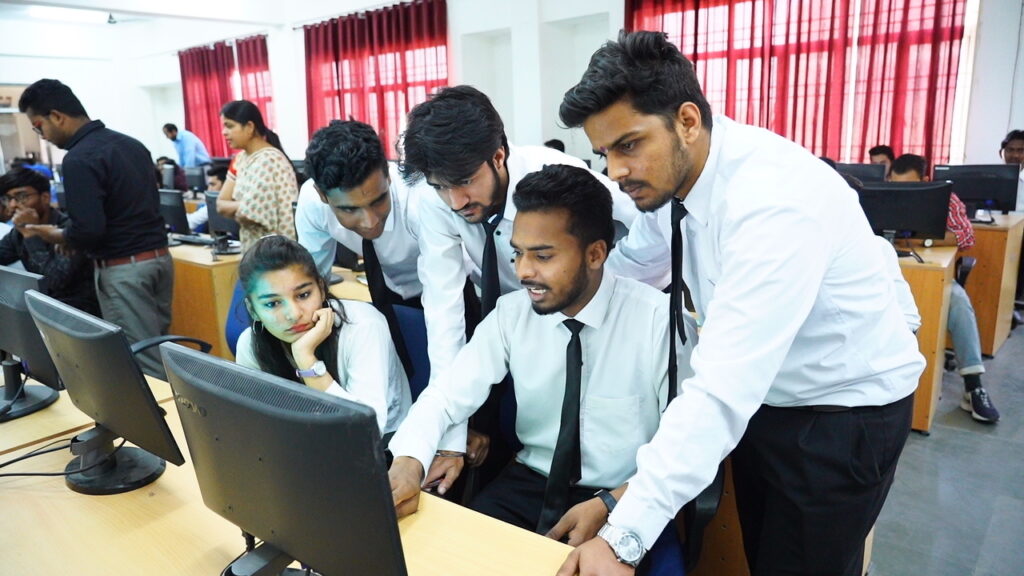
After completing a BTech graduates have a variety of options for higher education and career paths. Here’s an overview:
Higher Education Options
Master’s Degrees
- MTech/MSc in Engineering: Specialize in a particular field of engineering or technology.
- MBA (Master of Business Administration): For those interested in management roles or entrepreneurship.
- MSc in Data A/AI: Focus on advanced data analysis, machine learning, and artificial intelligence.
Postgraduate Diplomas
- PGDM/PGP: Often industry-focused, these programs offer specialized skills in areas like management, finance, or marketing.
- Certification Programs: Short-term courses in niche areas like cybersecurity, cloud computing, or blockchain.
Research Opportunities
- PhD: Pursue research in a specific area of interest within engineering or technology.
- Research Fellowships: Work on research projects and contribute to academic advancements.
International Education:
- Study Abroad: Pursue higher education at universities abroad for exposure to global perspectives and opportunities.
Career Options
Engineering Roles
- Software Engineer/Developer: Design, develop, and maintain software applications.
- Data Scientist/Analyst: Analyze and interpret complex data to inform business decisions.
- Network Engineer: Manage and optimize network systems for organizations.
Corporate Roles
- Management Consultant: Provide strategic advice to improve business processes and efficiency.
- Product Manager: Oversee the development and lifecycle of products within a company.
- Business Analyst: Analyze business needs and recommend technological solutions.
Startups and Entrepreneurship
- Startup Founder: Launch and manage your own tech startup or business venture.
- Freelancer/Consultant: Offer specialized services or consultancy in areas like software development, IT solutions, or project management.
Government and Public Sector
- Public Sector Jobs: Work in various government departments and agencies in roles related to engineering, technology, or management.
- Defense and Space Research: Join organizations like ISRO, DRDO, or similar institutions.
Teaching and Academia
- Lecturer/Professor: Teach at universities or colleges and contribute to academic research.
- Educational Content Developer: Create educational material and resources for academic institutions or online platforms.
Industry-Specific Roles
- Financial Technology (FinTech): Roles in technology-driven financial services and solutions.
- Healthcare Technology: Work on technology solutions in the healthcare sector.
- Manufacturing and Automation: Engage in roles related to industrial automation and smart manufacturing.
Non-Engineering Roles
- Sales and Marketing: Work in technology sales, marketing, or customer relations.
- Project Management: Manage and oversee engineering or IT projects from initiation to completion.
Online BTech (Bachelor of Technology) Courses
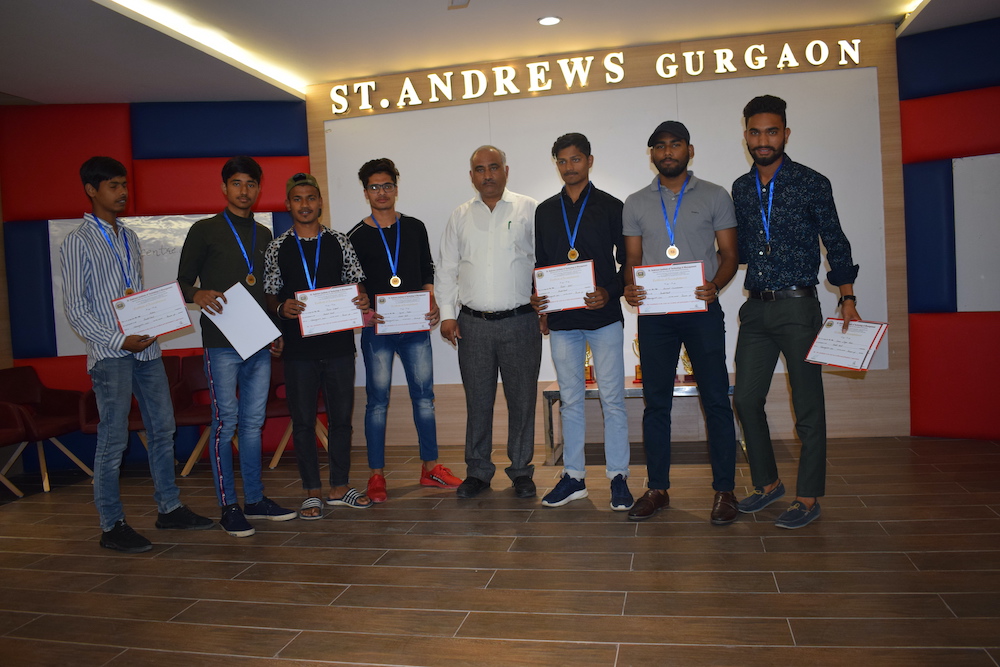
Here’s an overview of what you need to know about online BTech courses:
Key Features of Online BTech Programs
- Accreditation: Ensure the program is accredited by a recognized authority to ensure the quality and recognition of your degree.
- Flexibility: Courses are typically designed to fit around your schedule, making it easier to balance studies with work or other commitments.
- Course Structure: Online BTech programs often use a combination of video lectures, virtual labs, online assignments, and interactive sessions.
- Requirements: You’ll need a reliable internet connection and a computer. Some programs may also require certain software or hardware.
Popular Online BTech Specializations
- Computer Science Engineering
- Information Technology
- Electronics Engineering
- Communication Engineering
- Mechanical Engineering
- Civil Engineering
Admission Criteria
- Educational Qualification: Typically, you need to have completed higher secondary education (12th grade) with a background in science and mathematics.
- Entrance Exams: Some programs may require an entrance exam or a qualification based on your previous academic performance.
Career Prospects
Graduates of online BTech programs can pursue various careers, such as software development, network administration, and systems analysis. “What is B Tech Qualification” implies that the degree is generally recognized by employers, as long as it is from an accredited institution.
FAQs
How to get admission in BTech after 12th?
To secure admission in BTech after the 12th, students must complete 10+2 with Physics, Chemistry, and Mathematics (PCM). They should participate in entrance exams like JEE Main, JEE Advanced, or state-level tests such as MHT-CET and WBJEE. Private universities like BITS Pilani and VIT Vellore also conduct their own exams like BITSAT and VITEEE. “What is B Tech Qualification” involves qualifying these tests and then engaging in counseling sessions to select colleges based on ranks and preferences. Some institutions offer direct admission based on 12th-grade marks. It’s crucial to verify specific eligibility criteria and application deadlines for each college.
What qualification is B Tech?
“What is B Tech Qualification” refers to an undergraduate academic degree awarded after a four-year program in engineering or technology. This degree emphasizes both practical and theoretical knowledge across various engineering disciplines, including Computer Science, Mechanical, Civil, Electrical, and Electronics. The curriculum typically encompasses core subjects, electives, laboratory work, and a final year project. To enroll, students must have completed their 10+2 education with a strong foundation in Physics, Mathematics, and Chemistry. BTech graduates are well-prepared for careers in engineering, technology, research, and for further studies like MTech or MBA.
Can I choose BTech after 12th?
Yes, you can choose BTech after 12th. To be eligible, you must have completed 10+2 with Physics, Mathematics and Chemistry. Admission typically involves clearing entrance exams like JEE Main, JEE Advanced, or state-level tests (e.g., MHT-CET, WBJEE). Some private institutes conduct their own entrance exams (e.g., BITSAT, VITEEE). After qualifying, you participate in counseling sessions to select colleges based on your rank and preferences. Some institutions may also offer direct admission based on your 12th-grade marks. Ensure to check the specific eligibility criteria and application deadlines for the colleges you are interested in.
What is a BTech degree?
A BTech (Bachelor of Technology) degree is an undergraduate academic qualification obtained after completing a four-year program in engineering or technology. “What is B Tech Qualification” involves gaining both practical and theoretical knowledge in various engineering disciplines, including Computer Science, Mechanical, Civil, Electrical, and Electronics.
The curriculum of a BTech degree typically comprises core engineering subjects, elective courses, laboratory work, internships, and a final year project. “What is B Tech Qualification” encapsulates how this degree prepares students for careers in engineering and technology, equipping them to work in industries, research and development, or pursue further education such as an MTech or MBA.
What are the entrance exams for B Tech after 12th?
Entrance exams for BTech after 12th encompass national, state, and university-level assessments. “What is B Tech Qualification” touches on major national exams like JEE Main and JEE Advanced, which serve as entry points to NITs, IITs, and other prestigious institutions. State-level exams, such as MHT-CET (Maharashtra), WBJEE (West Bengal), and KEAM (Kerala), facilitate entry to state engineering colleges.
Private universities conduct entrance exams such as BITSAT (BITS Pilani), VITEEE (VIT Vellore), and SAITM. “What is B Tech Qualification” includes assessing candidates’ proficiency in Physics, Mathematics, and Chemistry through these exams, with scores critically influencing admissions and counseling sessions.
How can I apply for a BTech scholarship?
To apply for a BTech scholarship, begin by exploring scholarships offered through government schemes, private organizations, and educational institutions. “What is B Tech Qualification” involves checking eligibility, which might encompass academic performance, financial need, or extracurricular achievements. Gather necessary documents like academic transcripts, proof of income, recommendation letters, and personal statements. Visit the official scholarship portals to submit your application before the deadlines. “What is B Tech Qualification” may involve some scholarships requiring exams or interviews. Stay updated and diligently follow up on your application status to ensure compliance with all requirements and deadlines.
What is a B.Tech Degree?
A Bachelor of Technology (B.Tech) is an undergraduate degree that concentrates on engineering and technology, usually lasting four years. “What is B Tech Qualification” pertains to the study of various engineering disciplines, including Computer Science, Mechanical, Electrical, and Civil Engineering.
What career options are available after completing a B.Tech?
Graduates with a B.Tech can explore careers in software development, civil engineering, mechanical design, electrical systems management, research and development, among other fields. “What is B Tech Qualification” also opens doors to further studies like an M.Tech or MBA.

